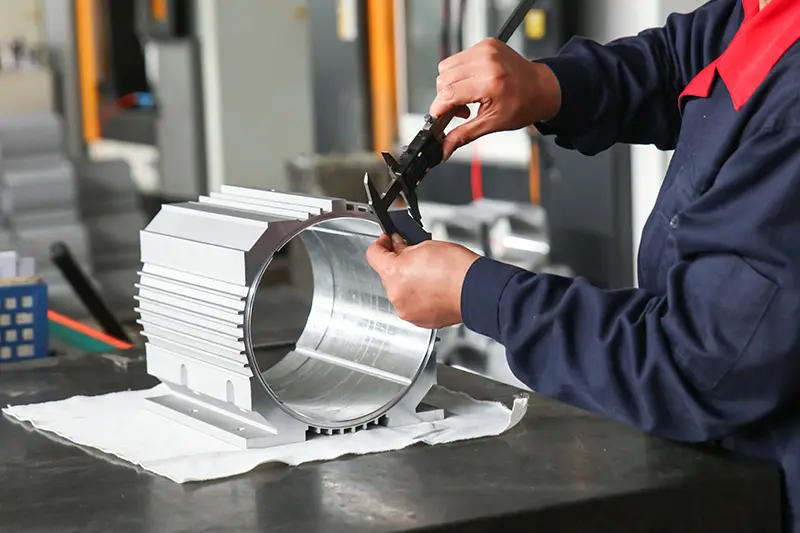Mobile:+86-311-808-126-83
Email:info@ydcastings.com
English
Choosing the Right Connector for Your Sump Pump Pipe System Installation
Understanding Sump Pump Pipe Connectors
Sump pumps are essential components in the management of water accumulation, particularly in residential basements and low-lying areas. These devices work by collecting excess water and pumping it away to prevent flooding and water damage. However, one crucial aspect that often gets overlooked in sump pump installations is the pipe connector. This article will explore the significance of sump pump pipe connectors, their types, materials used, and proper installation practices.
What is a Sump Pump Pipe Connector?
A sump pump pipe connector is a critical piece of plumbing hardware that connects the sump pump discharge pipe to the rest of the drainage system. It ensures that the water pumped out of the sump pit can flow freely and effectively away from the foundation of the home. A proper connector is essential to avert leaks, ensure continuous water flow, and prevent backflow into the sump pit.
Types of Sump Pump Pipe Connectors
There are various types of pipe connectors suitable for sump pumps, each designed for specific applications and types of piping systems. The most common types include
1. PVC Pipe Connectors These are widely used due to their durability, resistance to corrosion, and ease of installation. PVC connectors are typically used with plastic pipes and are ideal for both discharge and drainage applications.
2. Flexible Hose Connectors Made from rubber or reinforced vinyl, these connectors can be bent or maneuvered to accommodate various angles and positions. They are especially useful in tight spaces where rigid piping would be challenging to install.
3. Metal Pipe Connectors These connectors are less common but are sometimes used in systems requiring additional strength or where high temperatures are encountered. They are often used in conjunction with other robust materials like galvanized steel or stainless steel.
4. Barbed Connectors These are often used in conjunction with flexible hoses. They feature a series of ridges that ensure a tight fit with the hose, minimizing the risk of disconnection or leaks.
Material of Pipe Connectors
The choice of material for sump pump pipe connectors is crucial, as it affects the longevity and efficacy of the system.
sump pump pipe connector

- PVC This material is lightweight, easy to cut and fit, and impermeable to moisture, making it an excellent choice for most home drainage systems. - Rubber Flexible hoses made from rubber provide great flexibility but are susceptible to wear and tear over time.
- Metal While metal connectors are sturdier, they can corrode if not properly coated or maintained, making them better suited for industrial applications than residential use.
Installation Considerations
Proper installation of sump pump pipe connectors is vital for effective operation. Here are key considerations to keep in mind
1. Sealant Use It's important to use appropriate sealants or adhesives when installing connectors to ensure watertight connections and to prevent leaks.
2. Elevation The discharge pipe should be elevated to prevent backflow. Always position the connector in a way that promotes gravity flow away from the foundation.
3. Check Valves Installing a check valve is advisable to prevent the backflow of water into the sump pit when the pump shuts off.
4. Regular Maintenance Inspect the connectors regularly to check for any signs of wear or leaks. Early identification of issues can save extensive repairs and damage in the long run.
5. Local Codes and Regulations Always be aware of your local plumbing codes when selecting and installing pipe connectors, as certain materials or installation methods may not be permitted in your area.
Conclusion
Sump pump pipe connectors may seem like small components in a larger system, but they play an outsized role in ensuring effective drainage and preventing water damage to homes. Understanding the various types of connectors, their materials, and best installation practices can make a significant difference in the reliability of your sump pump system. Homeowners should prioritize these connectors during installation or upgrades to their sump pump systems, ensuring that their properties remain dry, safe, and protected from the dangers of excess water.
-
Materials Used in Manufacturing Cap End Pipe FittingsNewsNov.24,2025
-
Material Properties of CF8M CastingNewsNov.24,2025
-
How to Inspect Pump Cap Ends for DamageNewsNov.21,2025
-
Backward Curved Impeller – Efficient Airflow Solutions for Industry | YD CastingsNewsNov.21,2025
-
Automobile Water Pump - Efficient, Quiet, Durable & ElectricNewsNov.21,2025
-
Impeller for Pumps – High-Efficiency, Durable, OEM-ReadyNewsNov.21,2025











